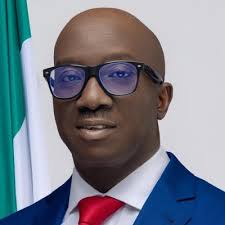Edo State Governor, Senator Monday Okpebholo, has rolled out an ambitious roadmap to transform education across the state, reaffirming his administration’s determination to give every child access to quality and future-ready learning.
The reforms, driven by the Commissioner for Education, Dr. Paddy Iyamu, are described as a holistic strategy to reposition education as the backbone of Edo’s long-term development.
Governor Okpebholo’s government is tackling decades of rot in the sector with sweeping interventions. Public schools are being rebuilt into modern centres of learning, equipped with STEM laboratories, functional classrooms, sanitation facilities, and updated teaching aids. Under the “EduRescue Initiative,” out-of-school children are being reintegrated, with free books and learning materials provided to ensure inclusivity.
At the heart of the reforms are teachers. Recruitment, digital training, and continuous professional development have been prioritized, with tablets and standardized lesson scripts distributed to ensure uniform, high-quality instruction statewide. “No education system can rise above the quality of its teachers. That is why we are investing in them like never before,” Dr. Iyamu said.
Students are also being prepared for life beyond the classroom. Every junior secondary school graduate will now receive a trade certification, equipping them with employable skills alongside academic qualifications. Technical colleges in Igarra, Irrua, and Benin are being revitalized, while a new National College is underway in Ovia to further strengthen vocational education.
To restore credibility, the state has begun shutting down unregulated “miracle centres” and mushroom schools, while working with WAEC and NECO to stamp out exam malpractice. According to the commissioner, this has rekindled parents’ confidence in public education as credible, competitive, and character-driven.
Higher institutions are also benefitting. At Ambrose Alli University, construction is ongoing on two 1,500-seat lecture theatres and a 600-bed hostel. At Usen Polytechnic, a 5-kilometre road abandoned for over 20 years is finally nearing completion. The introduction of EdoCert 2.0 has digitized academic records, ending long delays in certificate collection.
To ensure inclusivity, the government has launched bursary schemes for indigent students and adopted the Federal Government’s NELFund programme, ensuring no child is excluded from school for lack of funds. Civic education, sports, and moral reorientation are also being revived through initiatives like the Principals’ Cup and Governor’s Cup to nurture discipline, teamwork, and leadership.
Summarizing the vision, Dr. Iyamu said: “Our long-term ambition is for Edo to be the national model of education reform. We want children here not just to be literate but globally competitive, entrepreneurial, and future-ready.”









